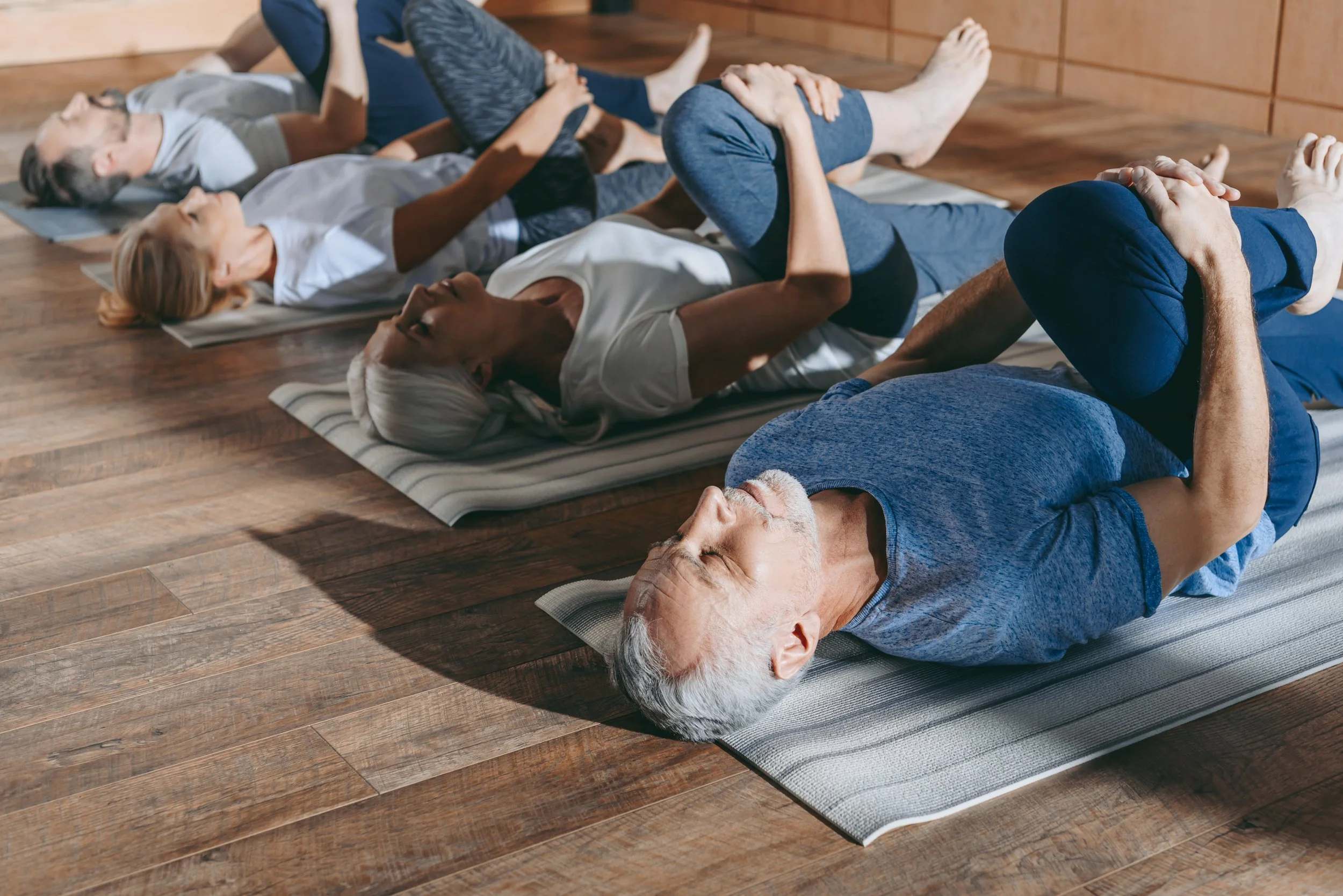
The Grieving Body: How Loss Lives in the Body
Grief is one of the most painful and disorienting human experiences. Many describe it as feeling as though a part of themselves has been cut away—an absence so profound it is felt not only emotionally, but physically. In The Grieving Brain, psychologist and neuroscientist Mary‑Frances O’Connor, PhD, offers compelling scientific and clinical insight into why grief feels the way it does and how loss fundamentally reshapes the body and brain.
A Book Review of The Grieving Body By Mary‑Frances O’Connor, PhD.
Grief is one of the most painful and disorienting human experiences. Many describe it as feeling as though a part of themselves has been cut away—an absence so profound it is felt not only emotionally, but physically. In The Grieving Brain, psychologist and neuroscientist Mary‑Frances O’Connor, PhD, offers compelling scientific and clinical insight into why grief feels the way it does and how loss fundamentally reshapes the body and brain.
O’Connor’s work challenges the common misconception that grief is “all in our head.” Instead, she demonstrates that grief is a whole‑body experience, rooted in biology, attachment, and survival.
Grief as a Biological Experience
According to O’Connor, bereavement activates powerful physiological responses. The death of a loved one can trigger increased heart rate, elevated blood pressure, heightened stress hormones, and inflammatory processes throughout the body. These responses occur because close relationships are not simply emotional bonds—they are part of our survival system.
Humans are wired for attachment. When we form a close bond, our nervous systems become attuned to another person’s presence, habits, and rhythms. Over time, the brain comes to rely on that relationship in ways that operate largely outside of conscious awareness. The sudden loss of that bond places the body into a state of alarm, as though something essential to survival has disappeared.
This helps explain why grief can feel so physically distressing: the body is reacting to danger, not metaphor.
The Loneliness of Loss and the Brain’s Search
One of O’Connor’s central themes is the brain’s effort to make sense of absence. After a loss, the world can feel painfully unfamiliar. Widows and widowers often describe a deep loneliness that cannot be easily named—not merely the absence of companionship, but the absence of a shared reality.
O’Connor explains that grief is not just cognitive (“I know they are gone”), but also emotional and neurological. The brain continuously predicts where our loved one will be, how they will respond, and how we will move through the world together. After a death, the brain must repeatedly confront the mismatch between expectation and reality.
This ongoing process of recalibration is exhausting and can leave grieving individuals feeling confused, unfocused, or emotionally overwhelmed.
The Body Keeps the Score of Loss
A particularly sobering contribution of The Grieving Brain is O’Connor’s discussion of the physical risks associated with bereavement. Research shows that chronic health conditions may emerge or worsen sooner following the death of a loved one. The prolonged stress of grief can accelerate inflammation, weaken immune functioning, and exacerbate underlying medical vulnerabilities.
O’Connor highlights the well‑documented “widowhood effect,” which shows a significantly increased risk of illness and mortality following spousal loss. In the first one to three months after a wife’s death, a surviving husband’s risk of death approximately doubles. Following a husband’s death, a surviving wife’s risk increases by approximately 50 percent. While this elevated risk decreases over time, bereavement is clearly a period of heightened physical vulnerability.
In rare but real cases, sudden cardiac events—sometimes referred to as “broken heart syndrome”—can occur following acute emotional loss.
Clinical Implications and Compassionate Care
O’Connor’s work carries an important message for both clinicians and bereaved individuals: grief deserves medical and psychological attention. Survivors are often encouraged to “be strong” or “move on,” yet the science suggests the opposite—grief requires care, monitoring, and compassion.
Medical follow‑ups, mental health support, and reduced self‑criticism during early bereavement are not indulgent; they are protective. Understanding grief as a biological process may also relieve some of the shame grieving individuals feel when their bodies seem to “betray” them.
A Grounded, Hopeful Perspective
While The Grieving Brain is rooted in neuroscience, it is ultimately a deeply humane work. O’Connor does not offer quick solutions or timelines. Instead, she emphasizes that adaptation after loss takes time and that the brain is capable of relearning a world forever changed.
This book is particularly valuable for grief therapists, medical professionals, and anyone navigating loss. It validates the experience of grief as both profoundly painful and deeply human—something that happens not because we are weak, but because we are bonded.
Final Reflections
The Grieving Brain reframes grief as a biological, relational, and survival‑based experience. Mary‑Frances O’Connor reminds us that love does not end when someone dies—and neither does the body’s memory of that love.
Grief lives in the body because love lived there first.
The Benefits of Connecting Mind and Body for Mental Health
When we think about mental health, we often imagine thoughts, feelings, or brain chemistry. But the truth is, our mental well-being is deeply connected to our physical selves. The body and mind are not separate systems—they are constantly in conversation. When we learn to connect the two, healing becomes more whole, more sustainable, and more empowering.
When we think about mental health, we often imagine thoughts, feelings, or brain chemistry. But the truth is, our mental well-being is deeply connected to our physical selves. The body and mind are not separate systems—they are constantly in conversation. When we learn to connect the two, healing becomes more whole, more sustainable, and more empowering.
Why the Mind-Body Connection Matters
Stress, anxiety, depression, and trauma don’t live only in our heads. They show up in our bodies, too—tight shoulders, upset stomachs, racing heartbeats, fatigue. This is because our nervous system, hormones, and immune system all respond to emotional experiences. Ignoring the body when we’re caring for our mental health is like trying to listen to half of a conversation.
By noticing and supporting the mind-body connection, we can create more balance and resilience.
Key Benefits of Mind-Body Connection
1. Better Stress Regulation
Breathing techniques, gentle movement, and mindfulness practices calm the nervous system, helping the body shift out of “fight or flight.” When the body relaxes, the mind follows.
2. Improved Emotional Awareness
Tuning into the body helps us notice early signs of stress or emotional overwhelm. A racing heart, shallow breath, or muscle tension can become cues to pause, reset, and take care of ourselves before emotions feel unmanageable.
3. Healing from Trauma
Trauma often lingers in the body long after the mind has tried to move on. Practices like yoga, EMDR, grounding exercises, or somatic therapy help release stored tension and create a sense of safety in the body again.
4. Increased Resilience and Energy
When we nurture both body and mind—through movement, sleep, nutrition, and mindful awareness—we support the whole system. This makes it easier to recover from stress, adapt to challenges, and feel more energy for daily life.
5. Greater Self-Compassion
Learning to listen to the body with curiosity (instead of judgment) teaches us to treat ourselves with kindness. That gentleness toward our bodies often translates into more compassion for our thoughts, emotions, and overall self.
Ways to Strengthen the Mind-Body Connection
Practice mindful breathing or meditation.
Try gentle movement like yoga, stretching, or walking.
Use grounding techniques (noticing what you see, hear, feel in the present moment).
Keep a journal of body cues and what emotions they may signal.
Work with a therapist trained in somatic or trauma-informed approaches.
Final Thoughts
Connecting the mind and body is not about perfection—it’s about awareness. By paying attention to the signals our bodies send and responding with care, we can support our mental health in powerful, lasting ways. Healing happens not just in our thoughts, but in every breath, heartbeat, and step forward.
If you’re ready to begin exploring the mind-body connection in your own life, I’d love to walk alongside you. As a trauma-informed therapist, I help individuals find healing, balance, and resilience through both emotional and somatic approaches. Give my practice a call at 309-889-4290.
Yoga and Mental Health: How Mindful Movement Supports Emotional Well-Being
In today’s fast-paced world, it’s easy for stress, anxiety, and emotional overwhelm to take hold. Many people are seeking ways to support their mental health beyond talk therapy, medication, or traditional self-care. One powerful approach that has gained recognition in both clinical and wellness communities is yoga.
In today’s fast-paced world, it’s easy for stress, anxiety, and emotional overwhelm to take hold. Many people are seeking ways to support their mental health beyond talk therapy, medication, or traditional self-care. One powerful approach that has gained recognition in both clinical and wellness communities is yoga.
Yoga is more than stretching or physical exercise—it is a practice that integrates the mind, body, and breath, helping individuals cultivate awareness, balance, and resilience. Research has shown that yoga can positively impact mental health by reducing stress, improving mood, and supporting emotional regulation.
How Yoga Supports Mental Health
1. Reduces Stress and Anxiety
Yoga encourages mindful breathing and relaxation, activating the parasympathetic nervous system—the body’s natural “rest and digest” response. This helps lower cortisol levels, calm the mind, and reduce the physical symptoms of stress and anxiety.
2. Improves Emotional Regulation
Through consistent practice, yoga helps individuals notice and respond to their emotions with awareness rather than react impulsively. This can be particularly beneficial for managing anger, frustration, or anxiety.
3. Enhances Mind-Body Connection
Trauma and chronic stress can disconnect us from our bodies, leaving us feeling tense, numb, or unsafe. Yoga emphasizes grounding, body awareness, and gentle movement, helping reconnect the mind and body in a safe, supportive way.
4. Boosts Mood and Resilience
Physical movement, breathwork, and mindfulness practices in yoga stimulate the release of endorphins and serotonin, improving overall mood. Regular practice also builds resilience, helping people cope with challenges more effectively.
5. Supports Trauma Healing
Certain forms of yoga, especially trauma-informed yoga, provide a safe environment for people to explore sensations, release tension, and regain a sense of control in their bodies. When combined with therapy, yoga can complement emotional healing in profound ways.
6. All Bodies Are Welcome
Yoga is for everyone—regardless of age, size, ability, or experience. Our approach emphasizes adaptation and accessibility, ensuring that each person can participate safely and comfortably. The practice is about connecting with your body, not achieving a specific pose or appearance. All bodies deserve to move, breathe, and experience the healing benefits of yoga.
Tips for Incorporating Yoga into Mental Health Care
Start small: Even 10–15 minutes a day can make a difference.
Focus on breath: Mindful breathing is often more impactful than the poses themselves.
Seek trauma-informed classes: Look for instructors trained to support people with trauma histories.
Combine with therapy: Yoga can complement counseling by enhancing self-awareness, stress reduction, and emotional regulation.
Be gentle and patient: Yoga is a journey, not a performance. Progress is measured in awareness, not flexibility.
Final Thoughts
Yoga is not a cure-all, but it is a powerful tool to support mental health. By integrating movement, mindfulness, and breath, individuals can cultivate a stronger mind-body connection, reduce stress, and foster resilience.
At Summit Family Therapy, I encourage clients to explore approaches like yoga alongside therapy to support holistic well-being. If you are ready to combine mind-body practices with evidence-based therapy for mental health, I invite you to schedule a session with me, Dr. Courtney Stivers, and begin your journey toward balance, healing, and emotional wellness.
For women seeking a supportive, healing environment, consider joining an upcoming Women’s Trauma Recovery Workshop. It’s a safe space to connect, process trauma, and explore tools—like yoga and mindfulness—that can empower your mental and emotional well-being.




